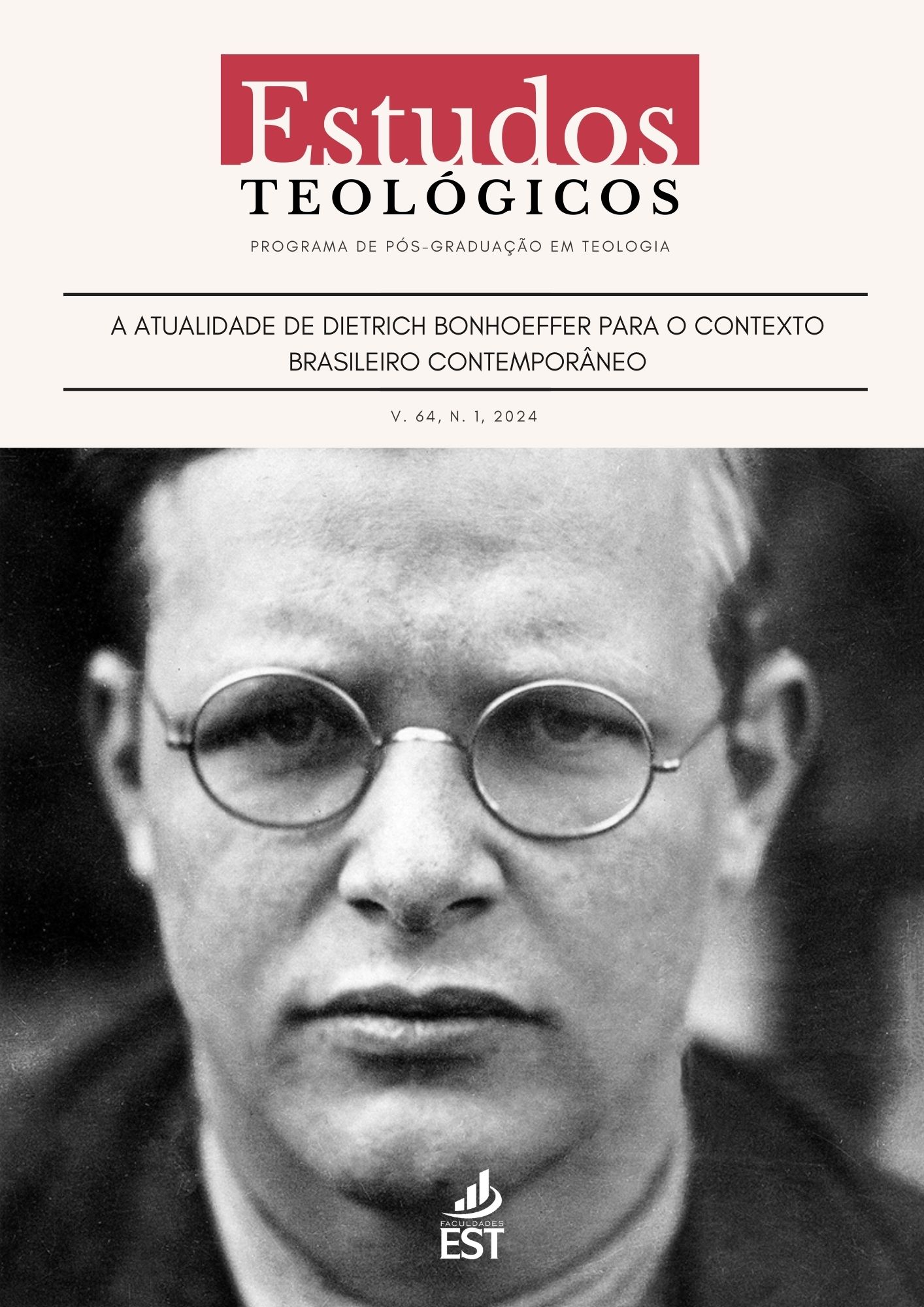Bonhoeffer and the neo-theocracy
A critique of the alignment between “evangelicals” and the Brazilian right
Keywords:
Dietrich Bonhoeffer, João Décio Passos, Neotheocracy, Brazilian RightAbstract
In recent years, it has been possible to see a growth in the number of Evangelical candidates and the space they occupy in parliamentary benches. Thus, there was – and still is – a political movement that identifies itself as the right wing and as a Christian that tries to dominate the government to establish what João Décio Passos calls neo-theocracy, which is, the government of a religious leader who represents the divine. This phenomenon has three main beliefs: a Pantocrator God, a war between good and evil, and the mythological leader. These aspects were also perceived in Nazi Germany and, therefore, Bonhoefferian criticism resurfaces as a necessary voice for current Brazil. In the face of the Pantocrator God, Bonhoeffer argues that one must live in the world in which God seems not to be; in a warlike and dual perspective, Christ is the center of all creation; finally, the mythological leader is nothing more than a seducer who wants to occupy the throne of the Nazarene. Through bibliographical research, this article aims to present Dietrich Bonhoeffer's criticism of the rapprochement between religion and politics, observed here in the context of the 2018 Brazilian elections, in the perception of an alignment between the Brazilian right and the “evangelicals”, with consequences for democracy in the following years.











